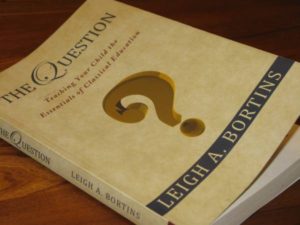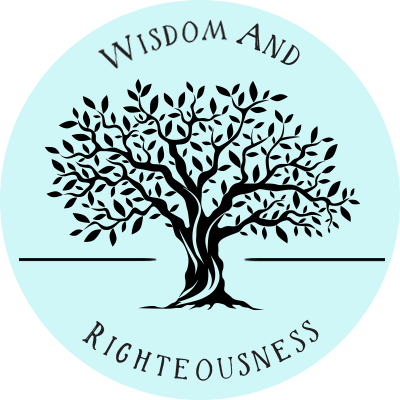
The Question: Teaching Your Child the Essentials of Classical Education
Who would have guessed that a book based on the premise of asking questions would answer so many?
In January, I mentioned my plan to attack a list of books, most (but not all) of them stemming from the Challenge program of Classical Conversations. The Question is the first of the books on this list related to the Classical Model of education, and I was excited to dive into it.
The book begins with a brief introduction to the classical model, followed by a discussion about how the dialectic teaches families to wrestle. Right out of the gate, an example is given of Socrates in a discussion with Polemarchus discussing the idea of “justice”. From this example, I was caught up in the idea of dialectic thought.
“The art of the dialectic – the practice of the skill of asking questions – teaches us to be aware of consequences before we make a judgement and then be able to live with the consequences of our judgements.”
There is a story told (pg. 39) of a young man in the 1890’s which you really must read. For the sake of not quoting the entire thing here, I just leave the suggestion for you to find a copy of the book and read that page at least. It deals with a concept that has become all too obvious to me over the last few years – the idea that Americans expect to live in a world with little to no risk, and when we take risks, we want others to have to pay the price for them. Of course, the author is not making this societal claim, but rather sticks to the point that as parents, we try to encase our children in safety that removes any opportunity for them to make sound judgements (or even poor judgements) and learn from them. Dialectic training is the art of asking questions – it is a systematic way of thinking through truth and non-truth. Done well, it allows the participant to become more agile at making decisions by recognizing where those decisions may lead. I thoroughly enjoyed these introductory chapters!
The second section of the book was very practical, and yet very intriguing. While it offers specific ideas for application of dialectic practices among each subject individually, it also inspires a new way to look at each subject and discuss it within the family. Subjects covered include Reading (excellent), Writing, Math, Geography & Current Events (wonderful), Logic, History, Science, and Fine Arts. The “Logic” section was great – “You can learn to be a better thinker” was a statement in this chapter. It is so important to me to teach my children that they get to choose what and how to think.
Our actions are mere physical displays of what we think. In a world willing to gobble up all kinds of intellectual “junk”, thinking that the brain can naturally filter the trash from the treasure, I want to equip my kids with a treasure map.
The dialectic process teaches them how to reason through ideas and recognize truth. The History section included this quote: “In part because no human is perfect, your student will learn as he asks questions about history that not only are some sources of information more reliable than others but also that all are swayed by certain biases and limited vision.” It is my hope that this will also result in an inward humility and compassion towards others – the realization that no matter what, my child will never have “all the right answers”, and that he should extend mercy and grace in thought towards others, just as they should do the same for him. In addition, it will make history come alive, as he dives into the lives of real people, with real emotions.
While it may not seem that my January picks of Heartfelt Discipline by Clay Clarkson and The Question by Leigh Bortins had anything in common, I was delighted to find that they truly did share some correlations. Heartfelt Discipline talked about looking at your parenting through a lens of reaching your child’s heart – walking the path of spiritual growth together, and The Question inspires parents to engage their children and each other in dialogue over the truths around them. The two books challenge the parent to come alongside their child in discipline, in instruction, and in discovery.

I must admit that throughout much of this book, I found myself thinking about applying this dialectic reasoning to evangelism. Perhaps this is one of the reason why we have lost the ability to debate or discuss things – because we are no longer interested in asking questions and allowing the responder to discover for themselves what they believe, but rather fling statements to and fro, no one ever really thinking any deeper in the process. What if we asked more questions? What if we were better at defining terms? Would we find out our “arguments” are mere misunderstandings? Would the other party dig deeper into their own beliefs and be willing to lay preconcieved notions aside more readily if it were they themselves, that were questioning their own beliefs? Would people see more of Him? Of course, this leads us to the point as well that if we continue to ask questions, there must ultimately be an answer.
So in the end, we arrive at ultimate Truth, ultimate reality – a place where the American culture doesn’t like to go.
But perhaps that is right where they need to be led…

Leave a Reply